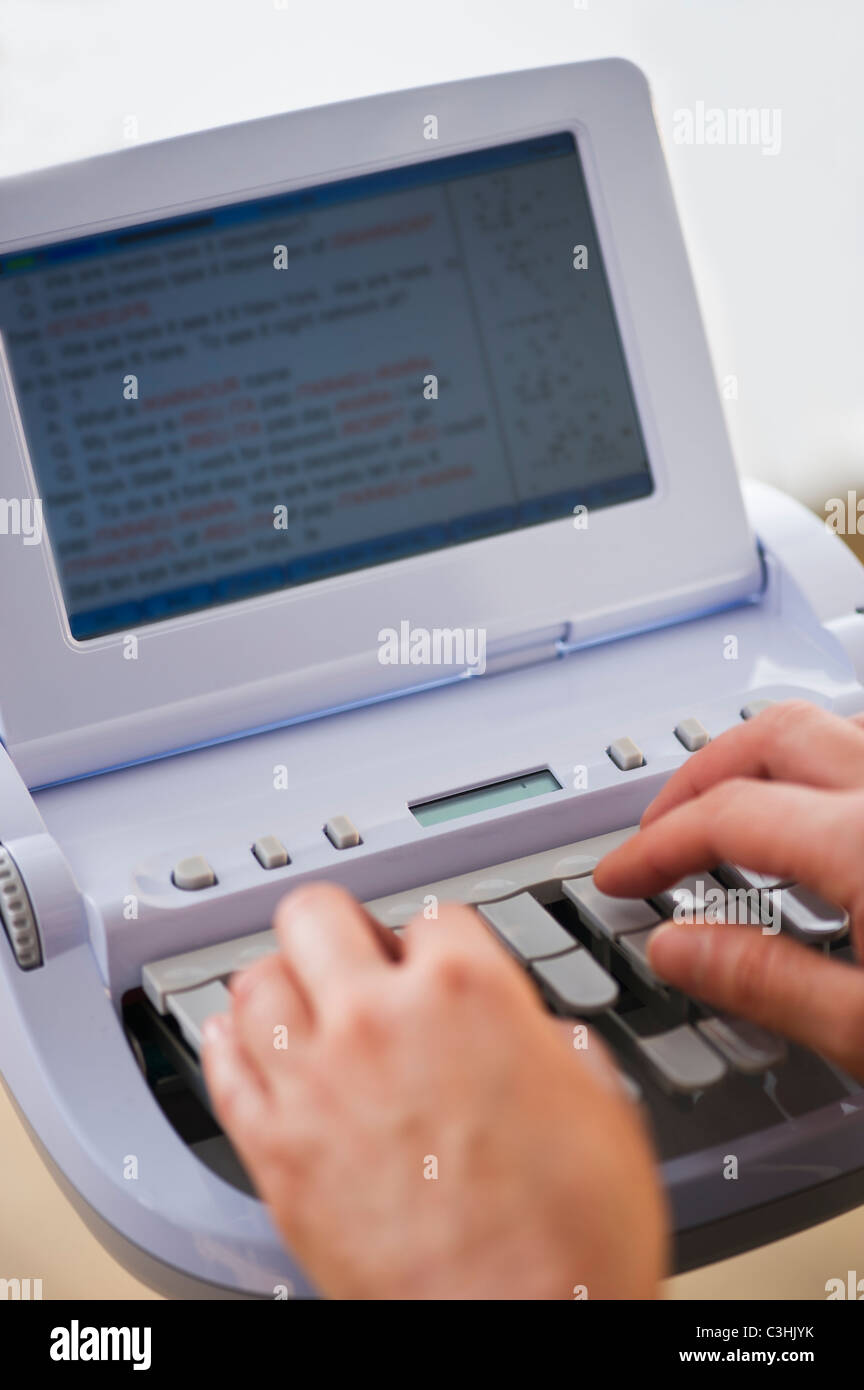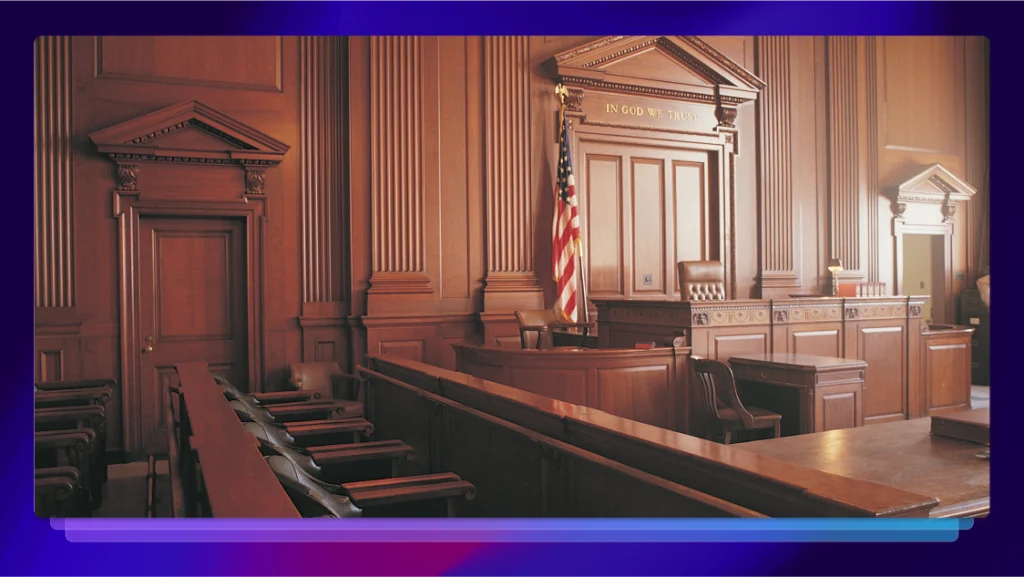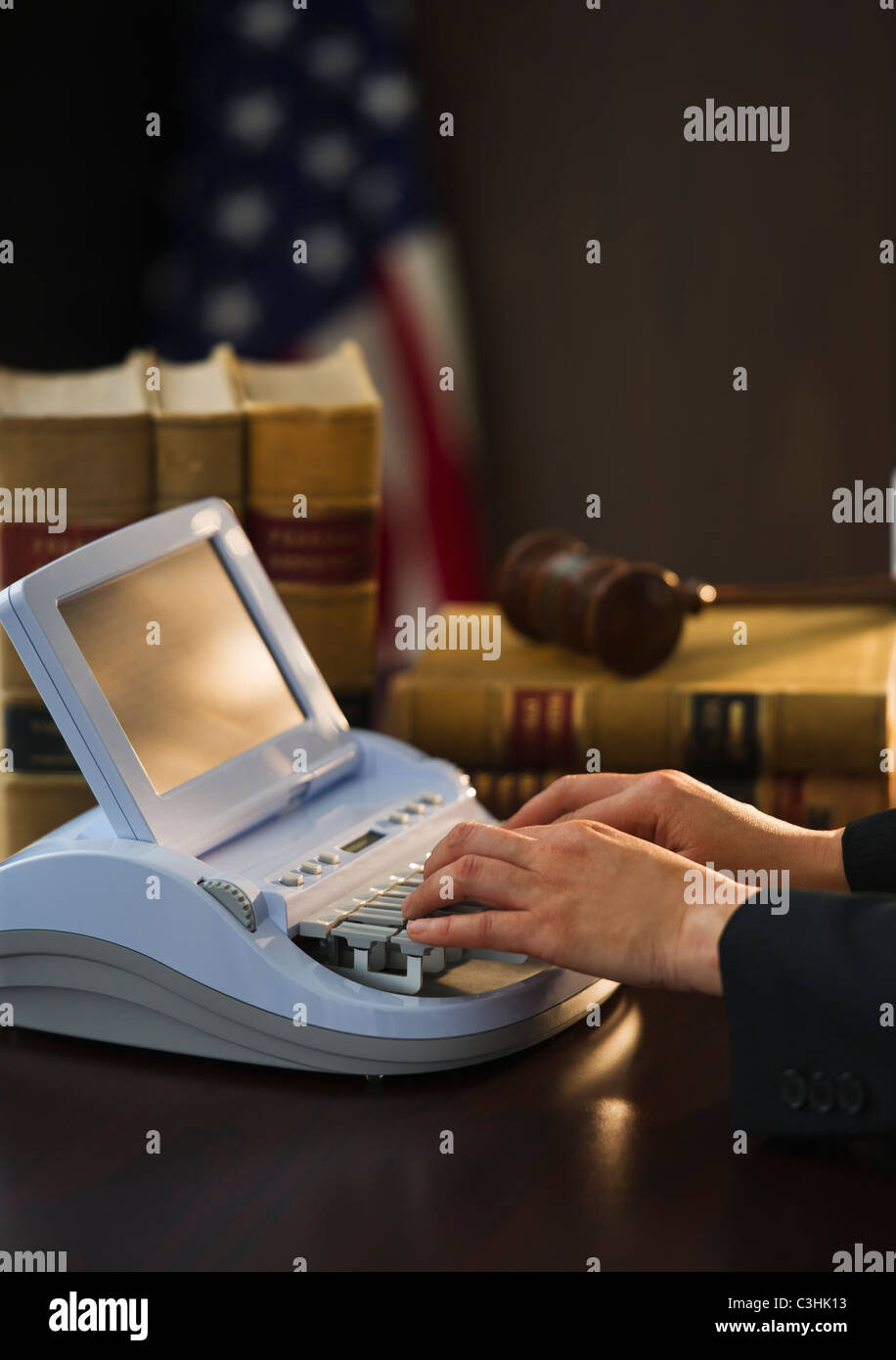How to Become a Professional Court Typist: Comprehensive Guide
How to Become a Professional Court Typist: Comprehensive Guide
Blog Article
Discover the Essential Skills and Responsibilities of a Court Typist in Today's Lawful Landscape
As a court typist, you hold an important position in the legal system. Your skills surpass just inputting; they involve recognizing complex lawful terms and procedures while making certain precision in every file. You collaborate very closely with attorneys and courts, making your role crucial for reliable communication. What specific abilities do you require, and just how can you adjust to the ever-evolving technical landscape? Let's discover this even more.
The Role of a Court Typist in the Judicial System
As the backbone of the judicial system, a court typist plays a crucial function in ensuring that lawful proceedings are precisely recorded. You are accountable for transcribing every little thing from witness testimonies to judges' judgments, catching every detail with precision. Your work helps preserve a long-term and clear document of court tasks, which is important for future referral and appeals.In the court, you're frequently the unrecognized hero, quietly guaranteeing that all talked words come to be created records. You keep privacy, recognizing the delicate nature of legal issues. You also collaborate carefully with attorneys, clerks, and courts to ensure the smooth flow of information. By functioning successfully under stress, you contribute to the total performance of the judicial process. Your focus to detail and dedication to precision not just maintain the integrity of the court however likewise sustain the wider pursuit of justice in culture.
Crucial Abilities Required for Court Typists
Court typists need an one-of-a-kind blend of abilities to succeed in their essential duty within the judicial system. You need to have outstanding typing skills, often achieving rates of 70 words per minute or more. Precision is essential; also a small error can lead to significant misunderstandings in lawful records. You'll likewise need strong interest to information, making sure every word is transcribed correctly.Additionally, great organizational skills are crucial for handling several cases and documents efficiently. Being tech-savvy is necessary, as you'll use numerous software application programs for word processing and paper administration. Strong communication skills aid you interact with judges, lawyers, and various other court personnel effectively.Lastly, a sense of professionalism and discretion is a must, as you'll handle sensitive info daily. By refining these skills, you'll be well-prepared to add considerably to the court atmosphere.
Comprehending Lawful Terms and Treatments
As a court typist, you need to comprehend vital lawful terms and procedures to perform your work successfully. Understanding these principles not only assists you record precisely but also assures you can follow the circulation of court process. Allow's discover the essential lawful vocabulary and a summary of court processes you ought to know.

Secret Legal Terms
Recognizing crucial lawful terms is vital for any person functioning in a courtroom atmosphere. You'll frequently experience terms like "plaintiff," which refers to the individual launching a claim, and "defendant," that replies to the claims. Recognizing the distinction between "civil" and "criminal" cases helps you realize the context of the process. Experience with "subpoena" guarantees you recognize the lawful records compelling witnesses to testify. Furthermore, terms like "proof" and "testimony" are crucial, as they associate straight to the details offered in court. Grasping these terms not only boosts your efficiency as a court typist yet additionally assures that you contribute to the precision and clearness of legal papers. Your role hinges on specific terms, so don't take it lightly!
Court Procedures Summary
Familiarity with crucial legal terms sets the phase for understanding court procedures. Comprehending just how a court features is important for any type of court typist. You'll encounter processes like arraignments, where offenders listen to fees, and activities, which are ask for a court judgment. Acquaint yourself with the duties of lawyers, judges, and clerks, as each plays a vital part in proceedings. Understanding the flow of a trial-- from jury selection to shutting debates-- aids you precisely record the process - court typist. In addition, understanding the importance of maintaining a neutral and exact document can not be overstated. By mastering these components, you'll enhance your efficiency in documenting vital court activities and contribute considerably to the legal procedure. Your role is important in preserving the integrity of court records
The Impact of Innovation on Court Keying In
Technology's changed court inputting in significant methods. With electronic transcription tools, you can raise effectiveness and accuracy, making your work much easier than ever. And also, remote court proceedings have changed exactly how you approach your work, calling for adaptability to new formats and modern technologies.
Digital Transcription Devices
As digital transcription tools remain to evolve, they're changing the way court typists do their duties. These tools enhance the transcription process, allowing you to catch talked words precisely and effectively. With voice acknowledgment software, you can transcribe real-time process, reducing hands-on input and minimizing errors.Moreover, cloud-based systems enable very easy access to papers, so you can function collaboratively with lawful groups and guarantee everybody's on the exact same web page. Automated format functions conserve you time on recurring jobs, allowing you concentrate on web content quality.Additionally, electronic tools boost security, shielding sensitive information with encrypted storage space and regulated gain access to. By embracing these innovations, you can enhance your efficiency and preserve Related Site the high requirements needed in the lawful field.
Remote Court Procedures
The increase of remote court proceedings has substantially changed the landscape for court typists. You currently depend on technology to capture and record online hearings from your office or home. Knowledge with video clip conferencing platforms is necessary, as you'll require to browse them perfectly to ensure a precise record. You'll additionally need to manage audio top quality, as history sound or read review connection issues can interrupt your work. In addition, remote process demand fast thinking; you may need to make clear statements or request repeats in real-time. Remaining arranged and efficient is important, as due dates remain tight. Welcoming these technical innovations not just boosts your skills however likewise ensures you remain a very useful possession in today's advancing legal atmosphere.
Precision and Interest to Detail in Transcription
Accuracy and interest to information are vital in transcription, especially for court typists. court typist. When you're recording lawful proceedings, every word counts. A single blunder can alter the significance of a statement, possibly affecting the result of an instance. You need to pay attention carefully, guaranteeing that you capture every nuance and inflection in the speaker's voice.Your ability to catch typos and grammatic errors is essential. You do not simply type; you verify that the final record is a specific representation of what was claimed in court. This requires a keen eye and a comprehensive understanding of legal terminology.Moreover, you'll require to be familiar with various accents and talking styles, as courts can organize a variety of speakers. By refining your precision and focus to detail, you'll maintain the stability of lawful papers and add markedly to the judicial procedure. Your diligence around truly makes a difference

Time Management and Organizational Abilities
While managing several jobs, effective time monitoring and organizational skills are important for court typists. You'll usually handle various deadlines, from transcribing court procedures to preparing legal documents. Prioritizing your workload is vital; recognize urgent tasks and tackle them first to assure prompt submissions.Organizational abilities come right into play when you're arranging through instance files, notes, and transcripts. Keeping everything nicely categorized not only conserves time however additionally minimizes the risk of error. Utilizing tools like schedules, to-do lists, or specialized software application can aid you remain on track and manage your time effectively.Moreover, establishing particular goals go to my site for each job session can increase your performance. Break bigger jobs right into smaller tasks to make them much more workable. By honing these abilities, you'll not just boost your performance yet also contribute substantially to the smooth operation of the lawful process, ensuring everything runs like clockwork.
Proceeding Education and Expert Growth Opportunities
Spending in your abilities doesn't quit with time management and company. As a court typist, you'll discover that proceeding education and learning and expert development are necessary to remaining competitive in the legal field. Try to find workshops or on-line training courses concentrating on sophisticated typing strategies, lawful terms, and transcription software application. These can develop your abilities and help you adapt to the most up to date technologies.Networking is just as crucial. Join specialist organizations like the National Court Reporters Association (NCRA) or regional legal associations. They usually use resources, training sessions, and meetings that can enhance your knowledge and attach you with peers.Don' t forget qualification programs that can increase your credibility and bankability. Remaining updated with the latest trends and ideal techniques in legal paperwork will certainly enhance your performance and accuracy, making you an important property to any lawful team. Invest in your development, and you'll reap the incentives throughout your occupation.
Often Asked Inquiries
What Is the Regular Income Range for a Court Typist?
A court typist's typical salary varieties from $30,000 to $55,000 each year, relying on experience and location. You could also find chances for development with extra abilities, leading to boosted pay in the lawful area.

Are Court Typists Required to Have a Legal Degree?
Court typists don't need a lawful level, but having one can be useful. You'll commonly locate that solid inputting abilities and knowledge of lawful terms are much more important for success in this role.
What Are the Job Hours for a Court Typist?

How Do Court Typists Make Certain Confidentiality in Their Work?
You guarantee discretion by securely taking care of sensitive files, using encrypted software program, and following stringent procedures. You remain knowledgeable about privacy laws and only share details with licensed personnel, maintaining count on the judicial procedure.
Can Court Typists Work From Another Location or Freelance?
Yes, you can work from another location or freelance as a court typist, specifically if you have dependable innovation and a protected environment. Several lawful experts currently embrace remote work, using versatility and possibilities for independent typists. As the foundation of the judicial system, a court typist plays an important function in guaranteeing that lawful process are accurately recorded. As a court typist, you require to comprehend vital lawful terms and treatments to perform your task properly. Grasping these terms not only improves your effectiveness as a court typist but also ensures that you contribute to the precision and clarity of legal papers. The rise of remote court procedures has greatly altered the landscape for court typists. As a court typist, you'll discover that continuing education and learning and expert development are important to remaining affordable in the legal field.
Report this page